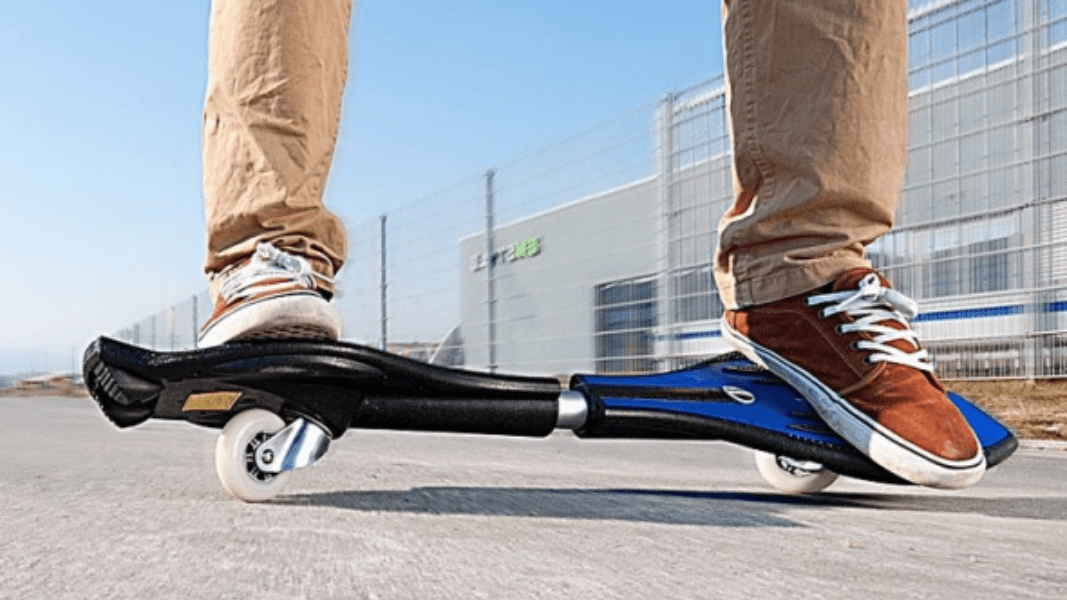
RipStik riding has carved a niche among the myriad of exhilarating activities, attracting a passionate community of riders who thrive on the unique blend of balance, skill, and adrenaline.
What sets this sport apart is not just the individual mastery of the board. Still, the sense of camaraderie was fostered within RipStik riding clubs and communities.
In this in-depth exploration, we will unravel the essence of RipStik culture, the birth and evolution of riding clubs, and the significance of these communities in shaping the experience of enthusiasts.
The Birth of RipStik Riding
Combining elements of skateboarding and surfing, the RipStik boasts a unique design featuring two narrow platforms joined by a flexible torsion bar. This design allows riders to propel themselves forward with a swiveling motion, creating a fluid and dynamic riding experience.
A subculture emerged as more people embraced the challenge of mastering the RipStik.
Riders, drawn to the distinctive feel of the board, started congregating in public spaces, forming impromptu groups to share tricks and tips.
These organic gatherings laid the groundwork for establishing formalized RipStik riding clubs.
The Evolution of RipStik Riding Clubs
RipStik riding clubs have grown from grassroots movements to organized entities that provide a platform for enthusiasts to connect, learn, and grow together.
These clubs vary in size and structure, ranging from small local groups to larger international organizations.
The common thread among them is the shared passion for RipStik riding and the desire to foster community.
-
Local Clubs
Local RipStik riding clubs often start as informal gatherings organized by a handful of enthusiasts within a community. These clubs serve as a hub for local riders to share their experiences, exchange tips, and organize group rides.
Local parks, skateparks, and urban areas with suitable terrain become the natural meeting grounds for these clubs.
The sense of community in local clubs goes beyond the thrill of the ride. It becomes a social space where riders of all skill levels come together, creating an inclusive environment.
Beginners find mentors and seasoned riders challenge each other to push their limits. The shared experiences of triumphs and wipeouts create a bond that extends beyond the riding surface.
-
Online Communities
These platforms facilitate global conversations, allowing riders from different corners to unite under the banner of their shared passion.
Online communities contribute significantly to the learning curve of RipStik enthusiasts. Riders can seek advice on mastering new tricks, troubleshooting common issues, and even organize virtual competitions.
The sense of belonging transcends geographical boundaries, creating a diverse and dynamic tapestry of experiences within the global RipStik community.
-
Competitive Clubs
As RipStik riding gained recognition as a legitimate sport, competitive clubs emerged to formalize and structure the competitive aspect of the activity. These clubs often organize and sponsor events, from local competitions to international championships.
Competitive RipStik riding adds another layer to the community by elevating the sport from a recreational activity to a recognized discipline.
Riders in competitive clubs strive for personal improvement and contribute to the progression of the sport as a whole.
The camaraderie within these clubs extends beyond the competition arena, with members often collaborating on new tricks and techniques.
Skill Development
Riding clubs act as invaluable platforms for skill development. Beginners benefit from the guidance of more experienced riders, receiving hands-on tips and advice. Aspiring riders can witness advanced techniques, motivating them to push their boundaries.
The exchange of knowledge within these communities accelerates the learning curve for everyone involved, fostering a culture of continuous improvement.
Safety and Support
RipStik riding, with its unique challenges, comes with its fair share of falls and setbacks. Riding clubs provide a support system where riders can share their experiences, discuss safety measures, and learn from each other’s mistakes.
The camaraderie within these communities creates a sense of responsibility, with more experienced riders looking out for the well-being of their fellow enthusiasts. This collective approach to safety contributes to the overall positive and supportive ethos of RipStik culture.
Innovation and Creativity
The collaborative nature of RipStik riding communities fuels innovation and creativity within the sport. Riders from diverse backgrounds bring different perspectives and styles, leading to the development of new tricks and maneuvers.
The constant exchange of ideas in person and online pushes the boundaries of what is possible on a RipStik. Riding clubs become breeding grounds for creativity, turning the sport into a dynamic and ever-evolving expression of skill and style.
Promotion of the Sport
RipStik riding clubs are instrumental in promoting the sport to a wider audience. Local clubs often organize events and demonstrations to showcase the excitement and skill involved in RipStik riding. Competitive clubs contribute to the sport’s visibility by hosting tournaments and championships that attract media attention.
Community Events and Gatherings
Regular meet-ups, events, and gatherings organized by RipStik riding clubs create a sense of anticipation and excitement within the community. These events go beyond the physical act of riding; they become social occasions where friendships are forged and community bonds strengthen.
From casual rides through urban landscapes to organized competitions, these events celebrate the shared passion that unites RipStik enthusiasts.
Conclusion
RipStik riding, with its unique blend of balance, skill, and excitement, has evolved from a niche activity to a thriving subculture. Whether through local gatherings, online platforms, or competitive organizations, these communities provide a space for enthusiasts to connect, learn, and grow.
As the RipStik community continues to expand globally, the essence of camaraderie remains at its core. Riding clubs serve as catalysts for skill development, safety awareness, and the promotion of the sport.